
The obelisk at its original location
New Orleans has four monuments to white supremacy now slated for removal. Two of these monuments fall into the run of generic Confederate celebration. Neither Robert E. Lee nor Jefferson Davis had all that much to do with New Orleans or Louisiana, but if you can’t put up a statue or Lee or Davis as an icon of white power then what else is there? In the case of New Orleans, one could plausibly argue that Andrew Jackson does the job and has an obvious local history connection. New Orleans has a Jackson statue and, while I understand it has rightly drawn criticism, the proposed removal doesn’t include it. It does include a statue of Confederate general P.G.T. Beauregard, a genuine native son.
This leaves us with the fourth monument to consider. It commemorates not the familiar war, but its less famous continuation. On September 14, 1874, five thousand members of the White League battled the state militia and local police. It took the arrival of the United States military to suppress their insurrection. People don’t just get together thousands strong and pick a fight with the state for the pure joy of battle. The obelisk celebrating the struggle did not originally come with an explanation, but the city added one in the 1930s:
United States troops took over the state government and reinstated the usurpers but the national election November 1876 recognized white supremacy in the South and gave us our state.
In the Thirties, whites didn’t feel as obligated to talk around the issues as they often do now. The rioters in 1874 fought for white supremacy against a Reconstruction state government and they would have had it if not for the Army getting in the way. If the Confederate veterans in the White League didn’t get what they wanted at the time, their perseverance eventually won through. The obelisk generated the sort of criticism one would expect, eventually leading the city to add a new plaque contextualizing the monument. This pleased no one, and really could please no one. The city moved the obelisk, leaving it out of view until former Grand Wizard David Duke sued for its return. New Orleans relocated the it to a less conspicuous place. Now it may at last go for good. This also fails to please.
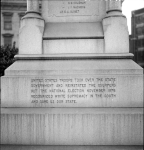
The inscription
We have a natural tendency to look for compromises. This often means not a settlement, but rather that a sufficient number of us agree to call things settled, as it did for Henry Clay’s famous compromises. Compromising makes one feel high-minded, reasonable, and generally better than the partisans of either side. They consider only their interests. We, the compromising, nobly work to for everyone’s. It all sounds very good on paper. It might even work out that way when differences come down to small details or similar means to achieve generally agreed-upon ends. Now and then, one does find situations where the narcissism of small differences plays a large role.
More often, though, one encounters real differences in values. Our shared humanity, though it ought to move us toward large circles of compassion and empathy, only goes so far. People have different and frequently irreconcilable values. We can hide that fact under platitudes about how we all love our families and want to lead peaceful, happy lives. Some of us, given the general human proficiency for self-deception, successfully hide it even from ourselves. Sufficiently blinded, we can push for peace and comity that amount less to mutual contentedness and more to often brute enforcement of the very circumstances which render those alleged goals impossible.
The white people of New Orleans once thought the White League right to fight for white power and the preservation of as much of slavery as possible. Perhaps many still do. White Americans frequently preach egalitarianism, but just as frequently lose interest when the time comes to turn sermons into policy. That might cost us some of our capital, social and otherwise. White power didn’t require justification. It did not constitute a new or radical change, like racial egalitarianism, but rather the normal order of events. This makes it peaceful. Everybody knows his or her place and we all go along, ignoring slavery, lynching, and other perfidies. One can ignore them entirely or pretend these things just happen and have nothing to do with us, but the more honest might admit that we prefer them. They happen to the right kind of people, deserving of such treatment for whatever reasons we care to invent.
Where can one find a middle ground between those who view such things as right and those who view them as wrong? If we view white Americans’ depredations against black Americans as right, then anything that ameliorates or halts them constitutes a loss. If we take them as wrong, then anything that doesn’t constitutes a loss. For either side to claim satisfaction, the other must lose. A true compromise solution, where no one loses and everyone walks away somewhat satisfied does not, and cannot logically, exist. In this case, should we understand compromise as ideal even in principle? Or should we understand it as an expression of less overt partisanship?
Appeals for compromise, like any other appeal, might arise from cynical motives. A party that expects to lose might suggest compromise in order to preserve an implicit victory against the threat of explicit defeat. Without positive action against it, a preferred status quo will usually prevail. It has, and in order to function most anywhere short of a police state, must have the at least passive assent of those with the power to change it. To that, we can add delays, procedural complaints, and maliciously scrupulous compliance with formalities. All can do much to gum up the works while appearing neutral and disinterested enough to avoid obvious partisanship.
All of this applies to the the forest of white supremacist memorials, but I think the point more generally applicable. In reading Robert Pierce Forbes’ excellent The Missouri Compromise and its Aftermath a few days back, I came on this telling point:
The second reason for slaveholders’ fear of federal revenues is at once the simplest and the most profound: they dreaded the disruption that change would bring to a closed system. The report of South Carolina’s Nullification Convention rendered a stunning judgment on the inflexibility of its slave society when it denounced the application of the American system of protection and internal improvements to “the great Southern section of the Union” on the grounds that “local circumstances” rendered the region “altogether incapable of change” (emphasis added). Nothing could better illustrate the brittleness of the slave system than this sweeping statement.[1]
South Carolina’s nullifiers might have spoken for their own especially ossified state, and surely appreciated the perceived fragility of their system, but other Southerners had a sunnier view of their section’s potential. Later generations of historians have taken a more positive (for white enslavers) one yet, noting the remarkable durability and adaptability of slave systems. That said, this still has some truth to it. Humans have a great ability to change and innovate when we absolutely must, but it takes works and might raise questions about the fundamental order of things that we find uncomfortable or intolerable. Even if we don’t consciously accept the premise that white must control black and black lives exist for the convenience of white looting, we live in a culture that does so. This holds true for Americans who have snow outside their windows right now as for those who have none. By fixating on allegedly unconnected factors, we can pretend that we have not imbibed those doctrines whilst simultaneously serving as partisans for them. We all do so often enough.
Those now protesting the removal of the Liberty Place monument and other markers of white power don’t always follow that script. I encourage you to click through and read the remarkable things that Amanda Jennings wrote in Kevin’s comments, but read them knowing that she likes her “goverment” without any n in it. I presume that her accent, like my own, doesn’t stress the letter. Jennings insists she means nuts. Should she convince you of that, you may also find her strange world where men like Alexander Stephens and Jefferson Davis wrote anti-Southern lies about the South in the service of “the government” quite persuasive. You may also find yourself interested in various real estate ventures and compelled to assist Nigerian dignitaries who have lost access to their bank accounts. I would advise against such endeavors, but per Jennings you should take all I write as the product of a brainwashed stooge of the government.
[1]Forbes, Robert Pierce (2009-01-05). The Missouri Compromise and Its Aftermath: Slavery and the Meaning of America (p. 168). The University of North Carolina Press. Kindle Edition.
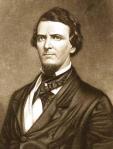

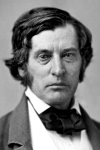






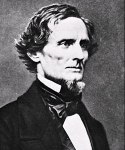


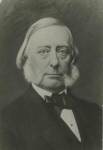


You must be logged in to post a comment.